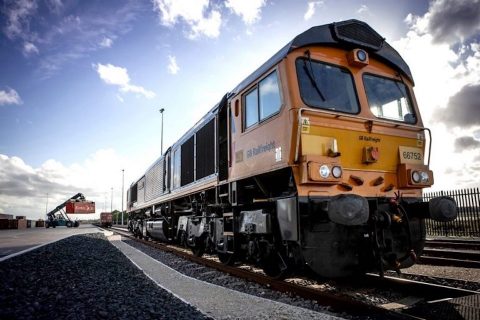First Ukrainian freight train reaches Latvia after a year-and-a-half hiatus

A freight train coming from Ukraine, loaded with rapeseed, reached Latvia for the first time in over a year and a half. The pilot operation was carried out by the Latvian national rail freight company, LDz Cargo, and the Ukrainian subsidiary of Lithuanian Railways, LTG Cargo Ukraine. This is the first time that Ukrainian grain products were shipped to Latvia via rail since all previous shipments occurred via road.
The train left Ukraine on September 25, reached Kaunas on 8 October, and arrived in Riga on 11 October. As it is shown by this data, the main issue remains bypassing Belarus by using the route via Poland, which makes transit time quite longer. The convoy was made up of 54 containers all loaded with 1423 tons of rapeseed, as LDz specified. LTG Cargo Ukraine took care of operations from Ukraine to the Kaunas Intermodal Terminal, in Lithuania. From there, LDz took over and brought the train to the Freeport of Riga where it was transshipped to reach its final destination at the Rīgas Universālais Termināls (RUT). “Currently, Ukrainian rapeseed is unloaded and stored in RUT warehouses”, the Latvian company specified.
Ukraine and Latvia
Latvia has been preparing for initiatives such as this one for quite some time. Already in August, Latvian Railways stated that it was ready to start exporting Ukrainian grain through its infrastructure and ports. However, Ukrainian Railways insisted on the fact that effective cooperation would be ensured only when reaching Baltic ports would cost around the same as reaching Polish ones. Moreover, a little over a month ago, the Freeport of Riga acquired new discharging containers to stimulate bulk goods transportation, especially grain. The new equipment could reduce the reloading time from train to vessel by two-thirds, accounting for around 20 hours. “We hope that this first test for the entire logistics chain will turn out to be successful, and from now on we will receive trains with Ukrainian grain in the port of Riga regularly,” highlighted Ansis Zeltiņš, manager of the Freeport of Riga.
Also read:




